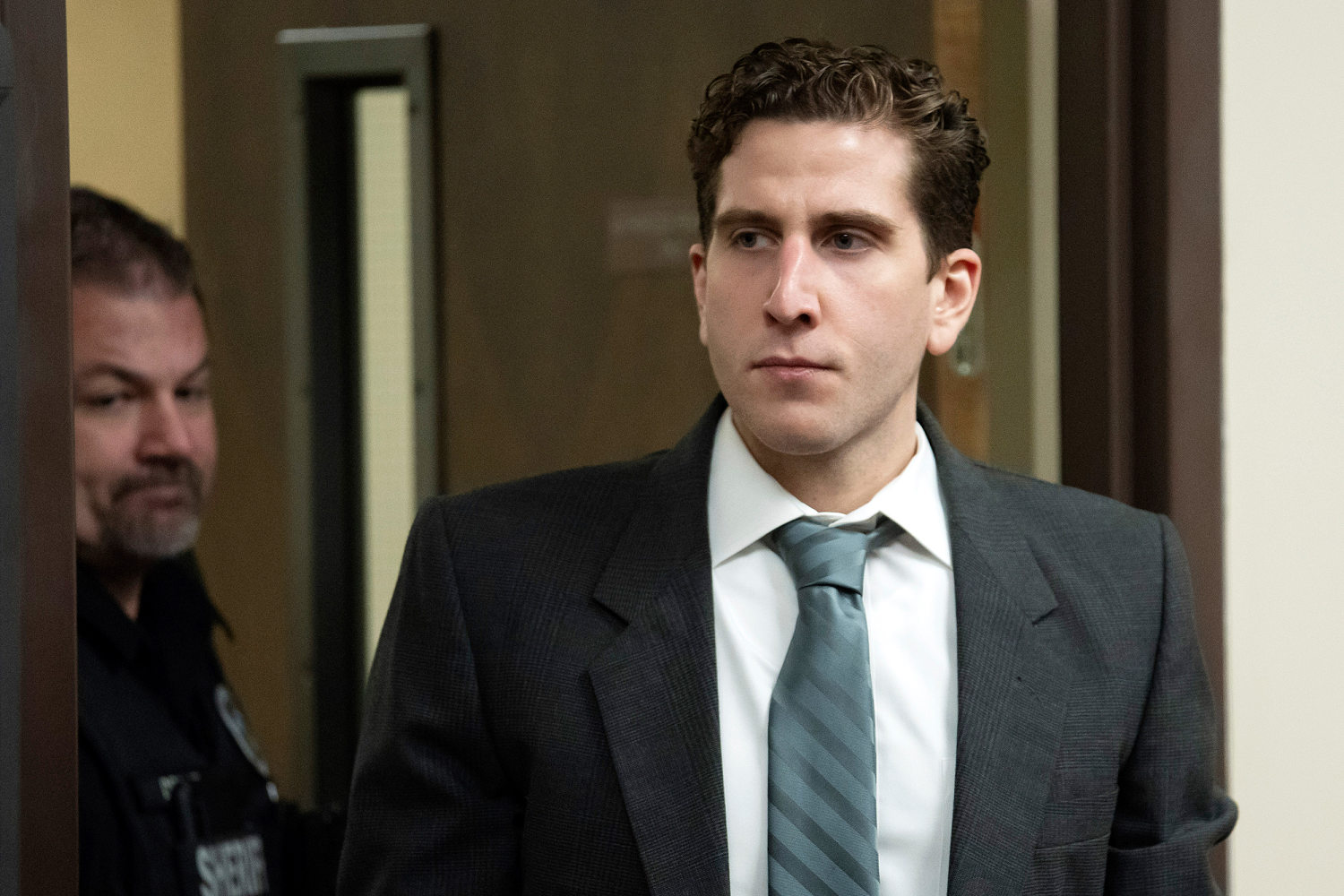
The defense team for the man accused of murdering four University of Idaho students said Thursday that his trial should not permit the death penalty as punishment, arguing that the state has “no real means” of executing an inmate and the methods are unconstitutional.
The death penalty hearing in Boise, Idaho, on whether suspect Bryan Kohberger can be executed if he is convicted comes less than a week before the campus community will mark two years since the quadruple homicide in the college town of Moscow.
“I don’t believe our constitution allows for us to move forward and make him sit in death row for years and years and years if the way Idaho is doing it right now isn’t really working,” Ann Taylor, Kohberger’s public defender, said. “It’s not a realistic option.”
“So you’re saying the anxiety of not knowing is a constitutional violation?” Ada County District Court Judge Steven Hippler asked.
Taylor continued: “It is anxiety. It is fear. it is the not knowing.”
But Latah County prosecutors responded that Idaho’s current method of execution, lethal injection, is now available, and while the method could change down the line, “we don’t have the time and effort debating what we don’t know in the future.”
“You don’t get to short-circuit the whole thing that death is off the table,” prosecutors said, adding “that’s not to say decades from now there’s not going to be a method to put him to death.”
Idaho currently allows death by lethal injection for condemned inmates, as well as firing squad, which Republican Gov. Brad Little signed into law last year as an alternative method.
But while the death penalty in Idaho remains on the books, it hasn’t been used since 2012 because the state, like many others, has had trouble procuring lethal injection drugs.
That changed in February, when the state located the necessary drugs and planned to execute Thomas Creech, who was convicted of five murders in three states, after he has been imprisoned for nearly half a century. But the state abandoned the execution after prison staff failed to establish an IV line, exposing the difficulties with administering the death penalty.
Another execution attempt of Creech, 74, had been scheduled for Nov. 13 — coincidentally the same day as when the four University of Idaho students were fatally stabbed in 2022 in an off-campus apartment house. His execution was temporarily halted by a federal judge this week as he appeals.
At Thursday’s hearing, Taylor said whether there would still be available drugs is unclear, and keeping Kohberger on death row would be “dehumanizing.”
“Looking forward, we just don’t have those answers yet,” Taylor said. “We don’t know how that will unfold.”
Hippler denied the defense’s request to hear from expert testimony regarding the constitutionality of the death penalty.
Meanwhile, the judge also heard arguments about whether Kohberger may pose a future danger to others.
Prosecutors have said in court filings that four aggravating factors exist in the case against Kohberger, who turns 30 later this month, making the crime more severe and the death penalty warranted. They are that there are multiple victims; the murders were “especially heinous, atrocious, or cruel”; the suspect exhibited “utter disregard for human life”; and he has “a propensity to commit murder which will probably constitute a continuing threat to society,” according to the filing.
Taylor on Thursday asked the judge to strike the state’s death penalty request on the claims of aggravating factors.
The defense also suggested allowing for a special phase if Kohberger is found guilty that would require the jury to determine if he is then eligible for capital punishment, an extra step that prosecutors want denied.
It was not immediately clear if Hippler would decide on the death penalty motion Thursday, but he did say he was allowing Kohberger to appear in “civilian” attire at his trial. Kohberger sat at the defense table Thursday in a suit.
He was arrested in December 2022, more than a month after the four students — housemates Madison Mogen, 21, Kaylee Goncalves, 21, and Xana Kernodle, 20, and Kernodle’s boyfriend, Ethan Chapin, 20 — were killed. Kohberger was a resident of nearby Pullman, Washington, and then a doctoral student at Washington State University.
A not guilty plea on four counts of first-degree murder and burglary was entered on his behalf in May 2023. Authorities have not publicly confirmed a motive, and a gag order has prevented many involved from speaking.
The prosecution says it expects at trial to present DNA evidence, details about cellphone use and security videos to connect Kohberger to the crime.
Kohberger’s defense has suggested that he often went on late-night drives and that cellphone tower data would show that he had been doing so miles away when the four students were killed.
Next summer’s trial was moved to Idaho’s capital of Boise from Latah County after the defense successfully argued there would be a strong possibility for bias among potential jurors and the local community does not have the resources for such highly anticipated proceedings.








